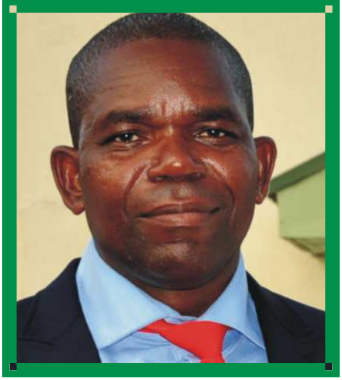Coping with a friend in power
In our last editorial board meeting of Worlldview Magazine in Abuja, one of the senior reporters of the media outfit gave an emotional account on a heartbreaking disappointment he got from one of his friends, a local government chairman in one of the Middle Belt States. He moved that a feature be initiated, or even sponsored, to discourage what he described as the bourgeoning insensitivity on relationship tracks of people in power. People who climb the ladder of success nowadays tend to jilt their friends with much alacrity. He went ahead and gave a grisly account of the shabby treatment which a friend, who until recently, was feeding on him, but whom destiny has favoured with power, meted on him.
It was in the process of individuals’ input on our colleague’s disappointment that one of the editors unraveled a theory that according to him has been tested and proven to be effective. He called it relationship investment. “As you invest in business, you invest in relationships too; the higher the investment, the higher the risk of disappointment”, he told us. To buttress his point, the Editor cited the example of the dwindling capital market sector saying those who put in much money in the stock market, buying shares, were more disturbed than those who made fewer commitments.
Every relationship, he continued, is sustained by various grades of social virtues. These virtues are tied with strings of passionate impulse like care, affection, likeness, love, trust and confidence. Even as they seem so inextricably intertwined, they are also independent of each other.
“Therefore, when circumstances catapult a friend to the ivory tower of power, raising his social economic profile by several digits higher than your own, the wisest thing to do is to quickly cash your cheque in the vaults of your relationship and withdraw ‘trust and confidence’ out of the passionate strings of the virtues of relationship. If you invest all in a relationship but keep with you confidence and trust, you would not suffer the degree of emotional casualty in the event of any disappointment. Those who feel disappointed, betrayed, cheated and duped by people they hitherto trusted are victims of ‘trust’ and ‘confidence’ investment. Should our reporter not invested heavily in trust and confidence on his chairman friend, the fury, disillusionment and depression occasioned by his friend’s inability to meet the standard of his expectation, would not have occurred. He would have taken it mildly as some of the things that people do when they find themselves on the corridors of power.” The Editor explained.
Explaining further, the Editor cited examples on two major historical personalities: Jesus Christ of Nazareth and Julius Ceaser of ancient Rome. Ceaser invested so much confidence and trust in his relationship with Brutus. Remember what happened at the capitol. Of all his assailants, Brutus’ stabbing was to Ceaser, the most disappointing and painful. E tu brute? Apparently, it was out of shock and disbelief over his friend’s act of betrayal that he slumped to death without attempting to fight back.
Jesus did not invest trust and confidence in his relationship with even his best of friends, the apostles. His greatest investment was love. In the last super, he said one of them was going to betray him. He was not disappointed when it came to pass. In the same vein, he rebuked Peter’s assurance that he will go with him through the predicted agonizing trials in the hands of the Jew’s leadership. “You will deny me three times before the cock crows”, he told him. This is the man that challenged the mob that came to abduct Jesus in the Garden of Gesamane. But Jesus was not carried away by his astounding military bravado.
He cited several other examples. Another, which I found interesting, is that of a British poet, Jon Clare (1793-1864). Though from a poor family background, the publication in 1820 of his first volume of poetry, Poems, Descriptive of Rural Life and Scenery, brought him fame and financial security. After the fashion for poetry with rural themes ended, John Clare was again cast into obscurity and became impoverished. See one of his lamentations arising from disappointment from friends as he captured in one of his works, “I am! Yet what I am who cares, or knows: my friends forsake me like a memory lost. I am the self-consumer of my woes; rise and vanish, an oblivious host, shadows of life, whose very soul is lost.” He wrote this in Northampton County Asylum, where he spent the last 22 years of his life.
The message is not intended to severe your relationship with friends who destiny has lift their social profile above you. Rather, it is a principle that can sustain relationships if adopted. If you did not get what you want from them, don’t curse or brand them with bad verses, but wish them well and move ahead. This you can succeed by withdrawing your confidence and trust investments if you invested in them already. This theory is applicable to man to woman love relationship. Give a woman all the money and gifts you afford, but reserve your confidence and trust or else you will feint by the time you catch her cheating.
Remember Henry Adams (1838 – 1918), a US historian, when he said, “A friend in power is a friend lost.” But I say unto you, by virtue of the editor’s theory, which has made much meaning to me, a friend in power, or wealth is a changed person, not lost as we believed in the past. Withdraw your confidence and trust investment if necessary and you will get well along with him. Where your confidence and trust can never be in vein is in no other person than the Almighty God WV
